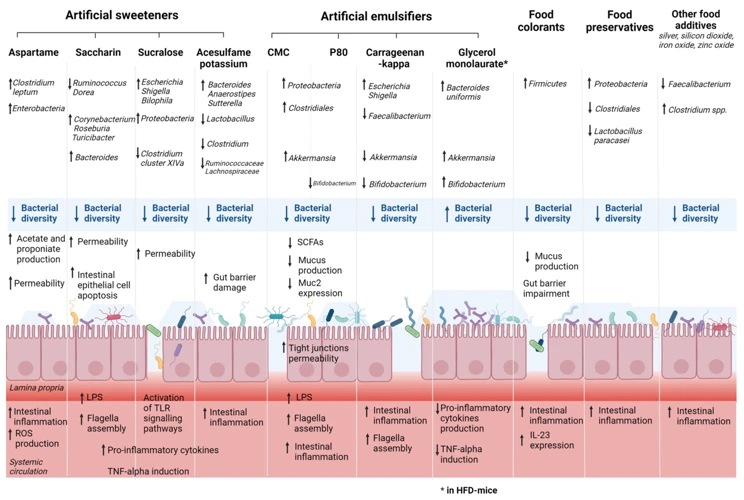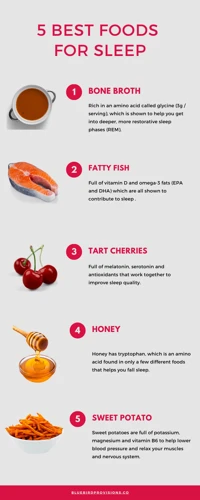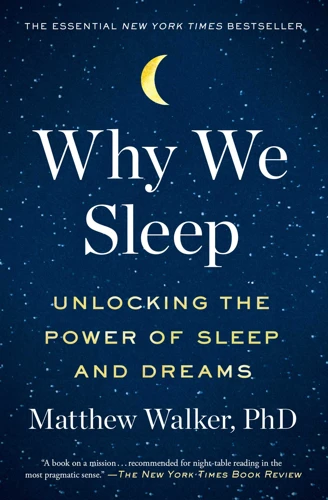As our society continues to prioritize productivity and activity, the importance of sleep often goes overlooked. However, getting a good night’s rest is crucial for our physical and mental well-being. Unfortunately, there are various factors that can disrupt our sleep, and one of those factors may be food additives. What impact do food additives have on sleep quality? In this article, we will explore the types and sources of food additives, how they affect our sleep, and what we can do to improve our sleep by avoiding certain additives.
What are food additives?

Have you ever wondered what exactly is in the processed foods you consume? The answer might surprise you. Food additives are substances that are added to food during preparation and processing to improve its taste, texture, appearance, and shelf life. These additives are commonly found in packaged and processed foods, ranging from soft drinks and candy to canned soup and frozen dinners. Understanding what these additives are and how they affect our bodies can be critical to maintaining good health and wellness.
Types of food additives
Food additives can generally be divided into several types, each with its own function and purpose. Preservatives are used to extend the shelf life of food by preventing the growth of harmful bacteria and fungi. Some common preservatives include sorbic acid and benzoic acid. Artificial sweeteners, such as aspartame and sucralose, are used to provide sweetness to foods without adding calories. Colorants are used to add or enhance the color of food. Examples include natural colorants like beet juice and synthetic ones like tartrazine. Flavor enhancers, such as monosodium glutamate (MSG), are used to enhance the flavor of food. Emulsifiers help mix ingredients that are normally immiscible, like oil and water. Examples include soy lecithin and mono-and diglycerides. Finally, thickeners are used to give food a thicker, smoother texture, and can be found in items like soups and sauces. A common thickener is carrageenan. It’s important to note that not all food additives are harmful and some have been deemed safe for consumption by regulatory agencies. However, some additives have been linked to negative health outcomes, including disruption of sleep.
Common sources of food additives
Food additives are commonly used in the food industry to enhance the color, flavor, texture, and shelf life of packaged food products. These additives are found in a wide range of processed foods, including snacks, beverages, and even fresh produce.
Here are some common sources of food additives:
- Processed meats: Chemical preservatives like sodium nitrite and sodium nitrate are commonly added to processed meats like ham, bacon, and sausage to prevent the growth of bacteria and extend shelf life.
- Beverages: Additives like caffeine, high-fructose corn syrup, and artificial sweeteners are commonly used in soft drinks and energy drinks.
- Bakery items: Emulsifiers, dough conditioners, and preservatives like calcium propionate are often used in bread, cakes, and other baked goods to improve texture and prevent spoilage.
- Snack foods: Artificial colors, flavors, and preservatives are commonly used in snack foods like chips, cookies, and crackers to enhance taste and appearance, and extend shelf life.
- Canned and packaged foods: Additives like monosodium glutamate (MSG), artificial colors, and preservatives like sodium benzoate are commonly added to canned and packaged foods to improve flavor, color, and prevent spoilage.
- Frozen foods: Preservatives like sodium bisulfite and sodium erythorbate are often added to frozen foods to prevent spoilage and maintain freshness.
Consuming foods that are high in food additives, particularly those that contain artificial flavors and colors, has been linked to adverse health effects, including sleep disruption. It is important to be aware of the sources of food additives and make informed choices about the foods we consume.
The impact of food additives on sleep

Have you ever found yourself tossing and turning in bed, unable to drift off to sleep even though you’re exhausted? If so, you might want to take a closer look at your diet. While it’s common knowledge that caffeine and sugar can interfere with a good night’s sleep, there’s something else to consider: food additives. Studies have shown that certain additives commonly found in processed foods can disrupt the body’s natural sleep cycle, leaving you feeling groggy and unrefreshed come morning. Let’s delve deeper into the issue and explore the impact of these additives on sleep.
Additives that can disrupt sleep
There are several food additives that can have a negative impact on sleep quality. These additives may disrupt the body’s natural sleep cycles and cause difficulty in falling asleep or remaining asleep throughout the night. Here are some of the most common additives that can disrupt sleep:
| Additive | Function | Effects on sleep | Common food sources |
|---|---|---|---|
| Monosodium glutamate (MSG) | Enhances flavor | May cause headaches and sleep disturbances | Chinese food, canned soups, processed meats |
| Caffeine | Stimulant | Disrupts sleep by keeping you awake | Coffee, tea, chocolate, energy drinks |
| Artificial sweeteners | Provide sweetness without calories | May cause difficulty falling asleep and staying asleep | Diet sodas, sugar-free gum and candy, some processed foods |
| High-fructose corn syrup (HFCS) | Sweetener | May reduce sleep quality and increase daytime sleepiness | Sodas, sweetened juices, processed snacks |
| Sodium | Preservative and flavor enhancer | May increase nighttime urination and disrupt sleep | Processed and canned foods, fast food, chips and snacks |
It’s important to note that not everyone will be affected by these additives in the same way, and some people may be more sensitive to their effects than others. However, it’s worth paying attention to the ingredients in the foods you eat and how they may be impacting your sleep quality.
How food additives affect sleep
Food additives can have a significant impact on our sleep patterns. They can affect the quality of sleep by disrupting the body’s natural processes. Here are some ways in which food additives affect sleep:
- Stimulating effect: Certain food additives have a stimulating effect on the body. This means that they increase the activity of the nervous system, making it difficult to fall asleep. Additives like caffeine, which is commonly found in soda and energy drinks, can disrupt sleep by keeping you awake for longer periods.
- Disrupting hormones: Some food additives can have a negative impact on the body’s hormones, particularly those that regulate sleep. These additives can disrupt the production of serotonin, melatonin, and other sleep-regulating hormones. For example, artificial sweeteners such as aspartame can interfere with the production of serotonin, which can lead to sleep disturbances.
- Causing discomfort: Certain food additives can cause discomfort or digestive issues, which can make it difficult to fall or stay asleep. Additives like monosodium glutamate (MSG) and high-fructose corn syrup (HFCS) can cause bloating, heartburn, and other gastrointestinal problems that can impact sleep quality.
- Triggering allergies: Some food additives can trigger allergic reactions or sensitivities, which can lead to sleep disturbances. For example, food colorings like tartrazine (yellow #5) can cause allergic reactions in some people, leading to symptoms like hives, itchiness, and difficulty breathing. These symptoms can make it hard to sleep comfortably.
Food additives can negatively impact our sleep by stimulating the nervous system, disrupting hormones, causing discomfort, and triggering allergies. By avoiding sleep-disrupting additives and opting for healthier alternatives, we can improve the quality of our sleep and wake up feeling rested and refreshed.
How to identify food additives that affect sleep
Identifying food additives that may affect sleep can be tricky since they are often listed on packaging with complex names. However, paying attention to the ingredients and doing some research can help in avoiding sleep-disrupting additives. Here are some tips and examples to help identify food additives that affect sleep:
| Additive | Commonly found in | Effects on sleep |
|---|---|---|
| Monosodium Glutamate (MSG) | Soups, processed meats, frozen dinners | Can cause headaches and affect natural production of melatonin |
| Artificial colors | Processed snacks, candy, drinks | May cause hyperactivity and restlessness, making it difficult to fall asleep |
| Caffeine | Coffee, tea, soda, chocolate | Stimulant that can stay in the system for hours, making it harder to fall asleep |
| High fructose corn syrup | Sodas, processed foods, candy | May cause disrupted sleep patterns and lead to frequent waking during the night |
| Sodium Nitrite/Sodium Nitrate | Processed and cured meats | Can cause nightmares and affect the quality of sleep |
It is important to note that not all food additives will affect everyone in the same way. If you suspect that a certain additive is affecting your sleep, try keeping a food diary and monitoring your sleep patterns to see if there is a correlation. Additionally, consulting with a healthcare professional may also be helpful in identifying any potential sleep-disrupting additives.
Improving your sleep by avoiding certain additives
If you’re having trouble getting a good night’s rest, the culprit could be the food additives hiding in your meals. The impact of food additives on sleep can be significant and far-reaching, disrupting our circadian rhythms and preventing us from achieving the deep, restful sleep we need to feel our best. However, by taking some simple steps to avoid certain additives and make healthier choices, you can take control of your sleep hygiene and start getting the restful, restorative sleep you deserve. Let’s explore some effective tips and healthy alternatives for avoiding sleep-disrupting additives.
Tips for avoiding sleep-disrupting additives
One of the best ways to improve your sleep quality is to avoid consuming food additives known to disrupt sleep. Here are some tips for avoiding sleep-disrupting additives:
| TIP | DESCRIPTION |
|---|---|
| Avoid processed foods | Processed foods often contain high amounts of additives that can disrupt sleep. Instead, choose whole, unprocessed foods whenever possible. |
| Read food labels | When purchasing packaged foods, read the ingredient labels carefully. Look for additives such as artificial sweeteners, caffeine, and monosodium glutamate (MSG) which can affect sleep. |
| Limit caffeine intake | Caffeine is a stimulant that can affect sleep even many hours after consumption. It’s important to limit caffeine intake to improve sleep quality. |
| Avoid sugary drinks | Sugary drinks are often loaded with additives such as artificial colors and high fructose corn syrup. These additives can interfere with sleep and should be avoided before bedtime. |
| Choose natural sweeteners | Natural sweeteners such as honey, maple syrup, or stevia can be used as alternatives to the artificial sweeteners often found in processed foods. |
By following these tips, you can more easily identify and avoid sleep-disrupting additives, leading to better sleep quality and overall wellness.
Healthy alternatives to additives that impact sleep
When it comes to improving your sleep by avoiding certain additives, it’s important to know that there are healthy alternatives available that can help you get a good night’s rest. Instead of relying on processed and packaged foods that are high in additives, try incorporating more natural and whole foods into your diet. Here are some examples:
- Herbs and spices: Instead of using pre-mixed seasoning blends that may contain additives, try using fresh or dried herbs and spices to add flavor to your meals. Not only do many herbs and spices have health benefits, such as reducing inflammation, but they can also promote relaxation and help you fall asleep. Examples include chamomile, lavender, and valerian root.
- Fruits and vegetables: Fresh, whole fruits and vegetables are a great source of nutrients that can promote better sleep. Some fruits and vegetables, like cherries and leafy greens, contain natural compounds that can improve sleep quality, while others, like bananas and sweet potatoes, are rich in vitamins and minerals that support healthy sleep.
- Grains: Instead of processed grains like white bread and pasta, try incorporating whole grains like brown rice, quinoa, and oats into your diet. These grains are higher in fiber and nutrients and lower in additives, which can contribute to better sleep.
- Protein sources: When choosing sources of protein, look for natural and minimally processed options like fresh meats, fish, and legumes. Avoid processed meats like bacon and sausage which can contain high levels of additives.
By making these simple changes to your diet, you can improve your sleep quality and overall health. Remember to always read labels and be mindful of the additives in the foods you are consuming.
Conclusion
In conclusion, it is evident that food additives can have a significant impact on sleep. The consumption of certain additives can disrupt your natural circadian rhythm, making it difficult to fall asleep and stay asleep at night. It is crucial to be aware of the types of food additives that can cause sleep disturbances and to take steps to avoid them.
Reading food labels and choosing natural, whole foods over processed foods can help you avoid potential sleep-disrupting additives. Additionally, incorporating healthy sleep habits such as establishing a regular sleep schedule, engaging in regular exercise, and practicing relaxation techniques like meditation can help improve the quality of your sleep.
It is important to prioritize sleep as a critical component in maintaining overall health and well-being. If you are experiencing ongoing sleep disturbances, it is a good idea to speak with your healthcare provider to identify potential underlying medical conditions or sleep disorders that may be impacting your ability to sleep. Overall, by being mindful of the food you consume and making positive lifestyle changes, you can improve the quality of your sleep and increase your overall health and well-being.
Frequently Asked Questions
What are the most common food additives?
The most common food additives include preservatives, flavors, colors, and sweeteners.
Do all food additives affect sleep?
No, not all food additives affect sleep. Only certain additives, such as caffeine and artificial sweeteners, are known to interfere with sleep.
Can food additives contribute to insomnia?
Yes, certain food additives can disrupt the body’s natural sleep cycle and contribute to insomnia, particularly if consumed close to bedtime.
Are natural additives less likely to impact sleep than artificial additives?
Not necessarily. While some natural additives may be less likely to interfere with sleep than artificial additives, others, such as caffeine and sugar, can still disrupt sleep regardless of their origin.
How can I tell if a product contains sleep-disrupting additives?
Check the ingredients list on the product label for any known sleep-disrupting additives, such as caffeine, artificial sweeteners, or certain preservatives.
Is it safe to consume food additives in moderation?
Yes, in moderation, most food additives are considered safe for consumption. However, some individuals may be more sensitive to certain additives and experience negative side effects.
Can food additives cause nightmares?
While there is no conclusive evidence linking food additives to nightmares, consuming sleep-disrupting additives before bedtime may increase the likelihood of experiencing vivid or unsettling dreams.
Is it okay to consume sleep-disrupting additives earlier in the day?
Consuming sleep-disrupting additives earlier in the day is generally less likely to interfere with sleep than consuming them close to bedtime. However, individuals who are particularly sensitive to certain additives may still experience negative effects.
What are some healthy alternatives to sleep-disrupting additives?
Healthy alternatives to sleep-disrupting additives include natural sweeteners like honey or maple syrup, herbal teas instead of caffeinated beverages, and fresh herbs and spices for flavor instead of artificial additives.
Can avoiding sleep-disrupting additives improve overall health?
Avoiding sleep-disrupting additives may improve overall health by promoting better sleep quality and reducing the risk of negative health outcomes associated with poor sleep, such as weight gain, mood disorders, and decreased immune function.








